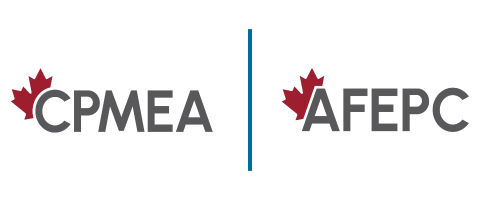Protecting Canada’s Drug Supply: The Case for Self-Sufficiency and Free Trade
- CPMEA
- Apr 22, 2025
- 3 min read

April 22, 2025, Toronto - Canada is a major force in pharmaceutical manufacturing, with a robust industry that contributes significantly to both the domestic and global markets. In 2023 alone, Canada exported $9 billion worth of pharmaceuticals to the United States, highlighting the scale and importance of the industry. However, proposed tariffs on pharmaceuticals threaten to disrupt this critical sector, harming local producers, driving up drug costs, and making North America more reliant on less stable suppliers.
Strengthening Canada’s Pharmaceutical Industry While Maintaining Fair Trade
A strong domestic pharmaceutical industry is essential for Canada’s healthcare security. By increasing its capacity to manufacture essential medicines, Canada can ensure a stable and secure supply without excessive dependence on any single country. However, self-sufficiency does not mean isolation. Maintaining open, tariff-free trade with the U.S. is equally vital to ensuring North America’s pharmaceutical resilience. A well-balanced approach—one that both supports Canadian manufacturers and fosters fair trade—will protect patients, lower costs, and strengthen supply chains across the region.
Building Drug Supply Sovereignty
The majority of medicines manufactured in Canada are generics and contract-manufactured drugs—the everyday medications found in household medicine cabinets across the country. By strengthening domestic manufacturing, Canada can reduce its dependence on foreign suppliers, particularly those in less stable markets, and ensure its own long-term healthcare security.
The Importance of Tariff-Free Trade
For decades, Canada and the U.S. have maintained a reciprocal, tariff-free pharmaceutical trade agreement, fostering innovation, competitiveness, and patient access to essential treatments. This agreement, formalized through the WTO Zero for Zero Pharmaceutical Agreement in 1994, has enabled both nations to build a strong, integrated supply chain that ensures the availability of medicines without unnecessary financial barriers.
To our knowledge, there has never been a time when tariffs were levied on imported medicines by either country. Even when the U.S. imposed tariffs on China in 2018, pharmaceuticals and their ingredients were exempt. This long-standing recognition that healthcare products should remain tariff-free ensures affordability and accessibility for patients.
Why Imposing Tariffs Would Be Harmful
Any move to introduce tariffs on pharmaceuticals would disrupt this carefully balanced system. The consequences could include:
Increased Drug Costs – Higher tariffs mean increased production costs, which would inevitably be passed on to consumers and healthcare systems.
Supply Chain Disruptions – Tariffs could lead to delays, shortages, and uncertainty in the availability of essential medicines.
Increased Reliance on Adversarial Markets – By limiting access to Canadian-made pharmaceuticals, tariffs could push the U.S. to depend more heavily on suppliers from less stable regions.
Harm to Local Producers – Canadian pharmaceutical manufacturers play a vital role in the national economy, supporting thousands of jobs and ensuring a dependable medicine supply. Tariffs could cause a domino effect, negatively impacting job creation, economic stability, and innovation within the industry.
The CPMEA strongly opposes any measures that would threaten the affordability and accessibility of life-saving medications. As a leading advocate for Canada’s pharmaceutical manufacturers, we are committed to ensuring that our industry continues to grow, innovate, and provide reliable medicines to patients in Canada and around the world.
Securing Canada’s Pharmaceutical Future
Maintaining a strong domestic pharmaceutical industry is crucial for public health security and economic resilience. Canada must prioritize policies that support pharmaceutical self-sufficiency, allowing the country to manufacture and supply its own essential medicines without over-reliance on foreign sources. At the same time, ensuring fair and open trade with the U.S. is key to keeping medicines affordable and supply chains strong—for both countries.
The CPMEA is advocating for a general exemption for pharmaceuticals from tariffs in all trade agreements. Medicines from any country, particularly high-quality FDA-approved medicines from Canadian facilities, should be traded freely and fairly. Restricting this trade only harms patients and disrupts healthcare systems.
By continuing to champion free and fair trade while strengthening its own manufacturing base, Canada can further solidify its position as a global leader in pharmaceutical production. The CPMEA remains dedicated to working with policymakers, industry stakeholders, and international partners to preserve and enhance the strength of Canada’s pharmaceutical sector.
To learn more about how the CPMEA is advocating for fair trade policies and a strong domestic pharmaceutical industry, visit www.cpmea.ca.
The Canadian Pharmaceutical Manufacturers and Exporters Alliance (CPMEA) – Alliance fabricants et exportateurs pharmaceutiques du Canada (AFEPC) represents pharmaceutical companies that manufacture in Canada. We have come together in an Alliance to tell the story of drug production in Canada and to raise awareness of the unique issues facing our industry.
Click here to contact us, or email us directly at info@cpmea.ca.
